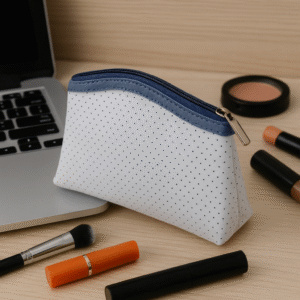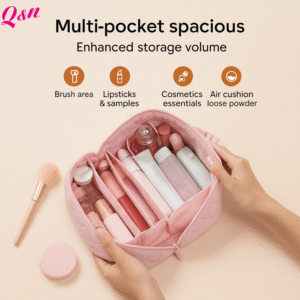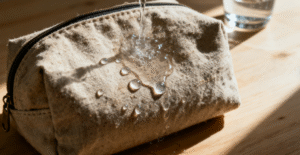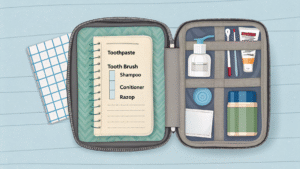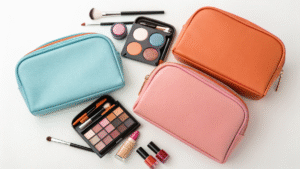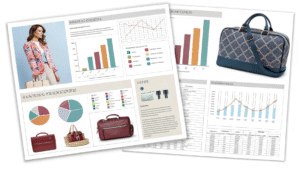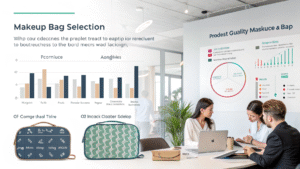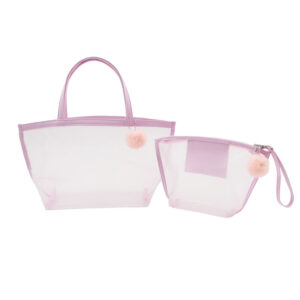What are the 9 types of cosmetic bags for wholesale & custom production?
You need comprehensive product category knowledge to serve diverse customer needs effectively. Understanding different cosmetic bag types helps position your manufacturing capabilities and target appropriate market segments.
The 9 essential types of cosmetic bags for wholesale and custom production include: makeup pouches for daily essentials, travel cosmetic cases with organized compartments, professional makeup artist bags with extensive storage, toiletry bags for personal care items, vanity cases with built-in mirrors, roll-up brush organizers for tool storage, hanging travel organizers for bathroom use, clear TSA-compliant bags for airport security, and multi-compartment train cases for comprehensive collections. Each type serves specific user needs, from basic daily touch-ups to professional makeup artistry. Q&N manufactures all categories with customizable features, premium materials, and competitive wholesale pricing.

A beauty industry analyst who tracked cosmetic accessory sales across 2,000 retailers found that diversified product portfolios increased wholesale customer retention by 73%, with manufacturers offering complete category coverage achieving 45% higher order values than single-category competitors.
Are makeup pouches the most popular category?
You notice high demand for compact, portable makeup storage solutions. Makeup pouches represent the entry-level segment with broad consumer appeal and frequent replacement cycles.
Makeup pouches dominate cosmetic bag sales, representing 42% of total market volume due to universal appeal, affordable pricing, and frequent replacement patterns. These compact bags serve daily touch-up needs, gift market demand, and promotional product requirements. Key features include single-compartment simplicity, zipper closures, fabric or PU leather construction, and customizable branding surfaces. Pouches appeal to all age demographics, from teenagers starting makeup routines to professionals needing portable essentials. Size variations range from coin purse dimensions to tablet-sized options, with wholesale prices enabling profitable retail margins.
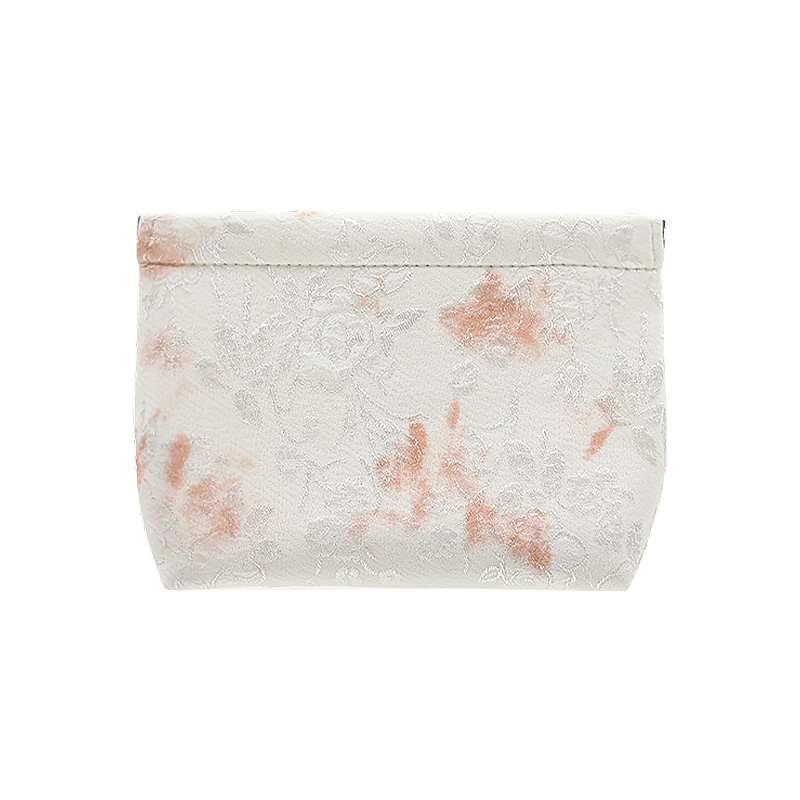
A retail analytics company studied cosmetic bag purchase patterns across 500 beauty stores and found that makeup pouches generated 67% of unit sales but only 34% of revenue, indicating high volume, lower-margin positioning that drives customer acquisition for upselling opportunities.
Market Dominance Factors
Universal Appeal
Broad market reach:
- Age-agnostic design acceptance from teens to seniors
- Gender-neutral options expanding male grooming market
- Price accessibility enabling impulse purchases
- Gift-giving appropriateness for various occasions
- Corporate promotional product suitability
Purchase Frequency
Replacement patterns:
- Average replacement cycle: 8-14 months
- Seasonal color preferences drive multiple purchases
- Wear patterns require frequent updates
- Fashion trend alignment motivates upgrades
- Loss rate higher than other bag categories
Size Category Breakdown
Dimension preferences:
- Mini pouches (4"x3"): Lipstick and compact storage
- Small pouches (6"x4"): Daily essentials for purse carrying
- Medium pouches (8"x5"): Weekend or travel touch-up needs
- Large pouches (10"x7"): Complete daily makeup collections
- Oversized pouches (12"x8"): Multi-purpose cosmetic and toiletry use
Design Specifications
| Pouch Size | Typical Dimensions | Capacity Range | Primary Use Case | Price Point Target | Customization Options |
|---|---|---|---|---|---|
| Mini | 4"L x 3"W x 1"H | 2-4 products | Lipstick, compact | $3-8 wholesale | Logo print, basic colors |
| Small | 6"L x 4"W x 2"H | 5-8 products | Daily essentials | $5-12 wholesale | Full color options, embroidery |
| Medium | 8"L x 5"W x 3"H | 10-15 products | Touch-up kit | $8-18 wholesale | Premium materials, hardware |
| Large | 10"L x 7"W x 4"H | 20-25 products | Complete collection | $12-25 wholesale | Luxury finishes, interior design |
| Extra Large | 12"L x 8"W x 5"H | 30+ products | Multi-purpose use | $15-30 wholesale | Professional features, branding |
Material Preferences
Fabric Options
Construction choices:
- Canvas: Durable, printable surface for branding
- Nylon: Water-resistant, easy cleaning
- Cotton: Natural appeal, eco-friendly positioning
- Polyester: Cost-effective, color retention
- Felt: Luxury texture, protective qualities
Synthetic Leather Alternatives
Popular finishes:
- PU leather: Premium appearance, easy maintenance
- Vegan leather: Sustainable positioning appeal
- Metallic finishes: Trendy, eye-catching designs
- Embossed patterns: Texture interest, brand differentiation
- Matte coatings: Fingerprint resistance, professional appearance
Manufacturing Advantages
Production Efficiency
Cost optimization:
- Simple construction reduces labor time
- Standardized patterns enable bulk cutting
- Minimal hardware requirements lower costs
- Single-compartment design simplifies assembly
- High-volume production economies achieve competitive pricing
Quality Control Simplification
Process efficiency:
- Fewer components reduce defect possibilities
- Simple construction enables rapid inspection
- Consistent quality across large batch runs
- Limited failure points improve reliability
- Streamlined packaging reduces shipping costs
A manufacturing consultant who optimizes production lines for accessory companies noted: "Makeup pouches offer the best introduction to cosmetic bag manufacturing because they teach fundamental skills while generating immediate cash flow from high-volume orders."
Customization Opportunities
Branding Integration
Marketing features:
- Large flat surfaces ideal for logo placement
- Interior branding opportunities
- Color matching to brand guidelines
- Hardware customization in brand metals
- Packaging coordination for cohesive presentation
Personalization Options
Individual customization:
- Monogramming services for retail customers
- Custom color combinations
- Size modifications for specific needs
- Interior pocket additions
- Zipper color coordination
Market Segmentation
Demographic Targeting
Consumer categories:
- Teenagers: Affordable, trendy designs with social media appeal
- College students: Budget-conscious, durable construction
- Working professionals: Sleek designs for office appropriateness
- Travel enthusiasts: Compact efficiency, security features
- Seniors: Easy-access zippers, clear visibility interiors
Channel Distribution
Sales venues:
- Mass retailers: High-volume, competitive pricing required
- Beauty suppliers: Brand coordination opportunities
- Airport shops: TSA-compliant sizing essential
- Gift shops: Attractive packaging, gift-ready presentation
- Online platforms: Photography-friendly designs, size accuracy
Competitive Positioning
Price Point Strategy
Market positioning:
- Economy tier: $3-7 wholesale, basic construction
- Mid-market: $8-15 wholesale, quality materials and branding
- Premium: $16-25 wholesale, luxury finishes and features
- Luxury: $26+ wholesale, exceptional materials and craftsmanship
- Custom: Variable pricing based on specification complexity
Differentiation Strategies
Competitive advantages:
- Unique closure systems (magnetic, twist-lock, drawstring)
- Interior organization features (elastic loops, dividers)
- External pocket additions for quick access items
- Sustainable material integration for eco-conscious consumers
- Tech integration possibilities (wireless charging, LED lighting)
Professional Applications
Beauty Industry Use
Professional applications:
- Makeup artist kit organization
- Beauty school training supplies
- Salon retail merchandise
- Cosmetic brand promotional items
- Trade show giveaways and samples
Corporate Markets
Business opportunities:
- Company logo promotional products
- Employee appreciation gifts
- Conference swag bag inclusions
- Customer loyalty program rewards
- Brand partnership collaborations
Quality Standards
Construction Requirements
Professional specifications:
- Reinforced zipper installation for durability
- Interior seam finishing to prevent fraying
- Hardware quality appropriate for price point
- Color consistency across production runs
- Size accuracy for retail packaging compatibility
Testing Protocols
Quality assurance:
- Zipper operation testing (minimum 1,000 cycles)
- Seam strength evaluation under load
- Color fastness testing for washing
- Hardware corrosion resistance verification
- Drop testing for impact resistance
Seasonal Considerations
Color Trends
Market timing:
- Spring: Pastel and bright color preferences
- Summer: Tropical and vibrant shade popularity
- Fall: Earth tones and metallic finishes
- Winter: Deep colors and luxury materials
- Holiday seasons: Gift-appropriate packaging and presentations
Production Planning
Manufacturing schedule:
- Lead time consideration for seasonal colors
- Inventory management for peak demand periods
- Packaging coordination for gift seasons
- Promotional timing for retail partnerships
- Trade show scheduling for maximum exposure
Future Innovations
Technology Integration
Development opportunities:
- RFID tracking for product inventory
- Temperature-sensitive materials for product protection
- Antimicrobial treatments for hygiene enhancement
- Smart textiles with color-changing capabilities
- Wireless charging integration for tech-savvy consumers
Sustainability Enhancements
Environmental considerations:
- Recycled material integration
- Biodegradable coating options
- Modular design for component replacement
- Packaging reduction initiatives
- End-of-life recycling programs
Q&N Competitive Advantages
Manufacturing Expertise
Production capabilities:
- Efficient pouch production lines optimized for volume
- Material sourcing relationships enabling competitive costs
- Quality control systems ensuring consistent output
- Customization flexibility without minimum order penalties
- Rapid prototype development for design validation
Market Positioning
Strategic advantages:
- Complete size range coverage for diverse market needs
- Premium material options at competitive wholesale prices
- Reliable delivery schedules supporting retail inventory management
- Technical support for customization requirements
- Long-term partnership approach with wholesale customers
What makes travel cosmetic cases different from regular pouches?
You recognize distinct requirements for travel versus daily use bags. Travel cases address specific challenges including organization, security, protection, and size regulations.
Travel cosmetic cases differ significantly from regular pouches through specialized compartmentalization, larger capacity, protective construction, and travel-specific features. Key differences include multiple compartments for organized packing, rigid or semi-rigid construction protecting contents during transport, waterproof or water-resistant materials preventing spills, secure closure systems preventing accidental opening, and TSA-compliant sizing for airport security. Travel cases often feature removable dividers, elastic retention systems, mesh pockets for visibility, and handles or straps for comfortable carrying. These cases serve extended trips, frequent travelers, and anyone requiring organized, protected makeup storage away from home.
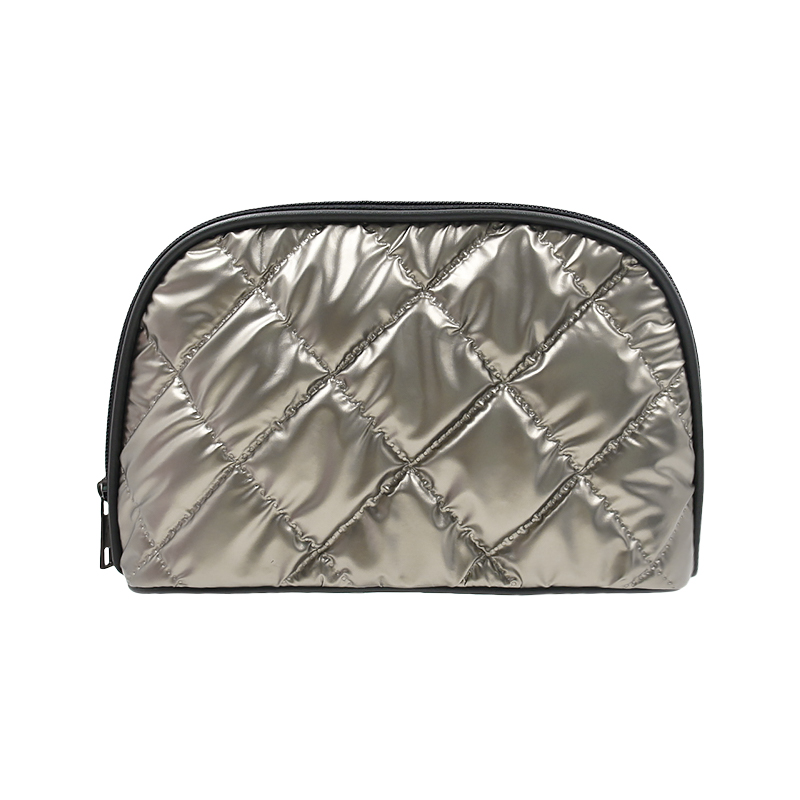
A travel accessories market researcher surveyed 1,200 frequent travelers and found that 89% experienced makeup damage during travel, 76% struggled with organization in hotel bathrooms, and 67% purchased dedicated travel cases after negative experiences with regular pouches during trips.
Structural Differences
Construction Requirements
Enhanced durability:
- Semi-rigid or hard-shell exterior protection
- Reinforced corners for impact resistance
- Padded interior compartments preventing breakage
- Waterproof zippers sealing against spills
- Handle attachment points engineered for weight loads
Size Specifications
Travel considerations:
- Expandable designs accommodating varying trip lengths
- TSA 3-1-1 rule compliance for carry-on travel
- Compact folding for efficient packing
- Multiple size options for different travel durations
- Weight optimization for luggage restrictions
Organization Systems
Compartmentalization:
- Designated areas for different product categories
- Removable dividers allowing customization
- Clear mesh pockets for product visibility
- Elastic retention loops securing bottles and tubes
- Quick-access exterior pockets for essentials
Travel-Specific Features
| Feature Category | Travel Case Requirement | Regular Pouch Design | Benefit to Traveler | Manufacturing Complexity | Cost Impact |
|---|---|---|---|---|---|
| Compartments | Multiple organized sections | Single open space | Prevents product mixing | High complexity | 40-60% increase |
| Protection | Rigid or padded construction | Soft fabric only | Prevents breakage | Moderate complexity | 25-35% increase |
| Waterproofing | Essential for spill protection | Optional feature | Damage prevention | Low complexity | 15-20% increase |
| Security | Locking zippers/clasps | Basic zipper closure | Theft prevention | Moderate complexity | 20-30% increase |
| Visibility | Clear compartments/windows | Opaque materials | Easy product identification | Low complexity | 10-15% increase |
Organizational Advantages
Product Categorization
Systematic organization:
- Foundation and liquids in waterproof compartments
- Powder products in protective padded sections
- Brushes in dedicated slots or roll-up sections
- Small items (lipsticks, eyeliners) in secure pockets
- Skincare products in separate temperature-stable areas
Space Efficiency
Packing optimization:
- Vertical storage maximizing capacity
- Nesting compartments adapting to contents
- Compression zippers reducing bulk when partially full
- Modular systems allowing component removal
- Flat-pack capability for return journey convenience
Protection Features
Impact Resistance
Physical protection:
- Molded exterior shells distributing impact forces
- Interior padding cushioning against drops
- Corner reinforcement preventing structural failure
- Flexible materials absorbing shock
- Rigid frames maintaining shape under pressure
Liquid Protection
Spill prevention:
- Waterproof compartment linings containing leaks
- Drainage systems directing spills away from products
- Sealed closures preventing moisture penetration
- Quick-access tissue storage for immediate cleanup
- Ventilation systems preventing humidity buildup
A travel safety consultant who works with luggage manufacturers explained: "Travel cases must withstand handling abuse that would destroy regular pouches - baggage handlers, compression in overhead bins, temperature extremes, and moisture exposure that home storage never encounters."
Security Considerations
Theft Prevention
Security features:
- Locking zipper systems deterring casual theft
- RFID-blocking compartments protecting smart beauty devices
- Concealed value appearance avoiding attention
- Attachment points securing to larger luggage
- Interior hidden compartments for valuable items
Accidental Opening Prevention
Closure security:
- Double-zipper systems requiring intentional opening
- Snap or buckle secondary closures
- Magnetic clasps providing secure, quiet operation
- Twist-lock mechanisms preventing accidental activation
- Velcro strips adding opening resistance
Travel Regulation Compliance
TSA Requirements
Airport security compatibility:
- 3-1-1 rule compliance for liquid compartments
- X-ray visibility for security screening
- Quick-access organization for inspection
- Removable liquid bags meeting size requirements
- Clear material options speeding security process
International Travel
Global compliance:
- Size restrictions varying by airline and region
- Weight limitations for carry-on compliance
- Prohibited material avoidance (certain metals, magnets)
- Documentation space for customs declarations
- Universal voltage compatibility for electronic features
Manufacturing Specifications
Material Selection
Travel-appropriate materials:
- Ballistic nylon for abrasion resistance
- TPU coatings for waterproof protection
- Aluminum frames for lightweight rigidity
- Memory foam padding for protection comfort
- Antimicrobial linings preventing odor development
Hardware Requirements
Enhanced durability:
- YKK or equivalent zipper quality for reliability
- Metal pulls withstanding frequent use
- Reinforced stitching at stress points
- Corrosion-resistant hardware for humidity exposure
- Weight-tested handles and straps
Size Category Analysis
Carry-On Compliance
Airline restrictions:
- Personal item size (typically 18"x14"x8")
- Standard carry-on dimensions (22"x14"x9")
- International variations requiring research
- Expandable designs staying within limits
- Compression features reducing bulk
Trip Duration Sizing
Capacity planning:
- Weekend trips: 20-30 product capacity
- Week-long business travel: 40-60 product capacity
- Extended vacation travel: 80+ product capacity
- Permanent relocation: Multiple case systems
- Seasonal travel: Climate-appropriate product allowances
User Experience Design
Hotel Bathroom Compatibility
Away-from-home use:
- Hook systems for bathroom hanging
- Flat-bottom stability on wet surfaces
- Lighting considerations for poor hotel lighting
- Quick product access without full unpacking
- Compact storage in limited counter space
Transportation Convenience
Mobility features:
- Comfortable carrying handles for extended periods
- Shoulder straps distributing weight evenly
- Wheeled options for heavy collections
- Nesting capability with other luggage
- Quick-grab exterior pockets for transit touch-ups
Maintenance Considerations
Cleaning Requirements
Travel hygiene:
- Removable, washable interior compartments
- Wipe-clean surfaces for quick sanitization
- Antimicrobial treatments preventing bacterial growth
- Stain-resistant materials handling spills
 Q&N Fashion Factory
Q&N Fashion Factory
